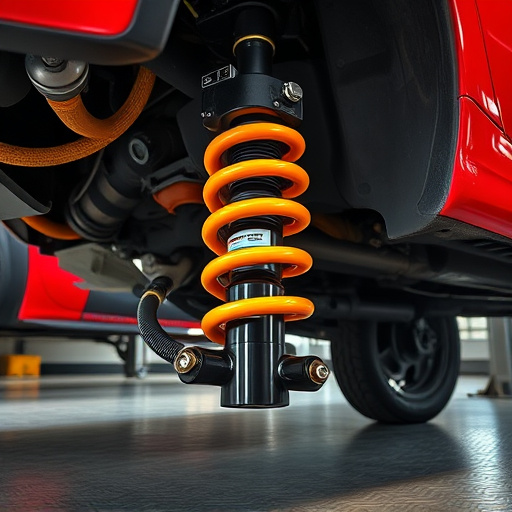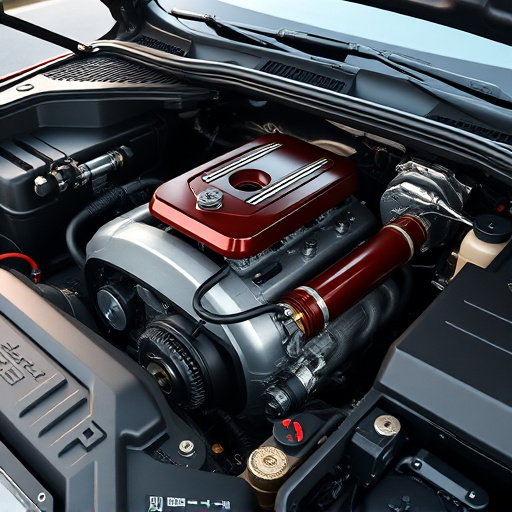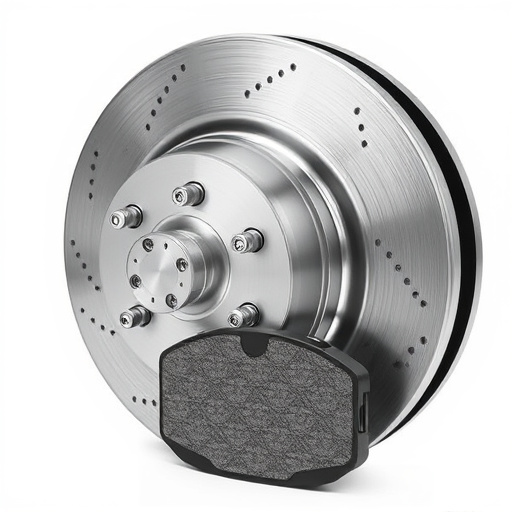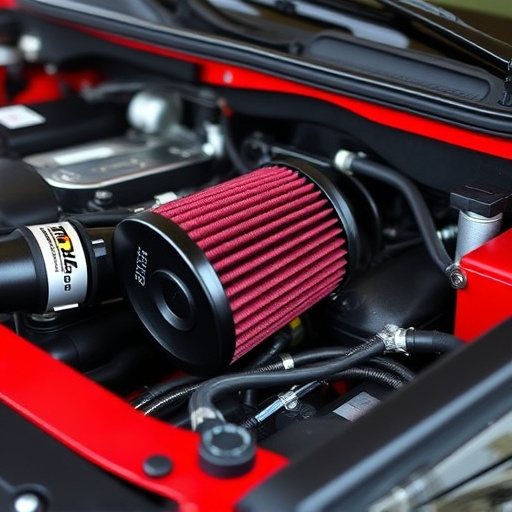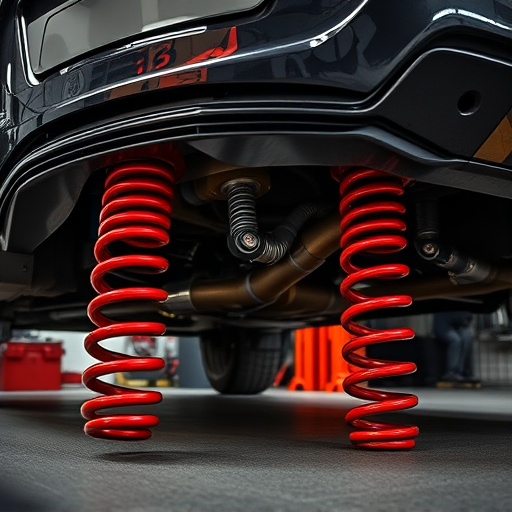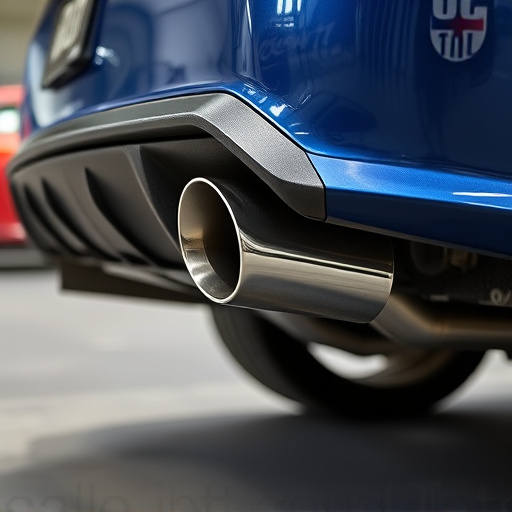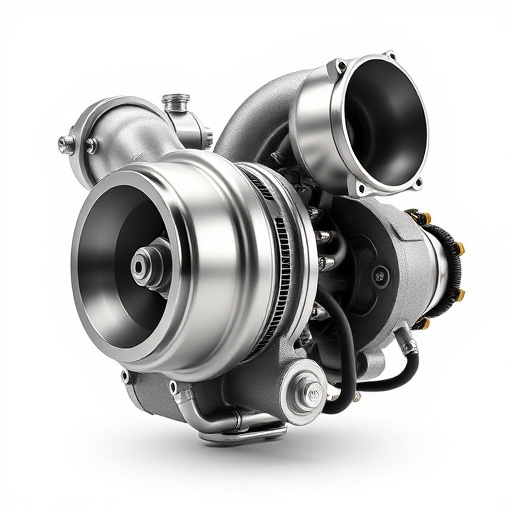Choosing the right material for your truck's exhaust tip is crucial for its longevity and performance. Options include stainless steel (durable, corrosion-resistant, high-temp performance), aluminum (lighter, excellent heat conductivity, ideal for modified trucks), carbon fiber (specialized, high strength-to-weight ratio), and composite materials (lightweight, durable, noise reduction). The best choice depends on prioritizing performance, lightweight design, or both; proper maintenance is key for composite components. For optimal balance of performance and value, consider composites.
In the world of trucking, selecting the right exhaust tip material is paramount for both performance and longevity. Exhaust tips, subject to extreme conditions, must withstand high temperatures, constant vibrations, and corrosive elements. This article delves into the materials used in exhaust tips for trucks—from steel and aluminum to advanced composites—exploring their advantages and disadvantages. We analyze durability factors like environmental impact, load capacity, and maintenance needs, guiding fleet managers in choosing the optimal material for enhanced truck performance and reduced downtime.
- Materials Used in Exhaust Tips for Trucks
- – Overview of common materials
- – Advantages and disadvantages of each
Materials Used in Exhaust Tips for Trucks
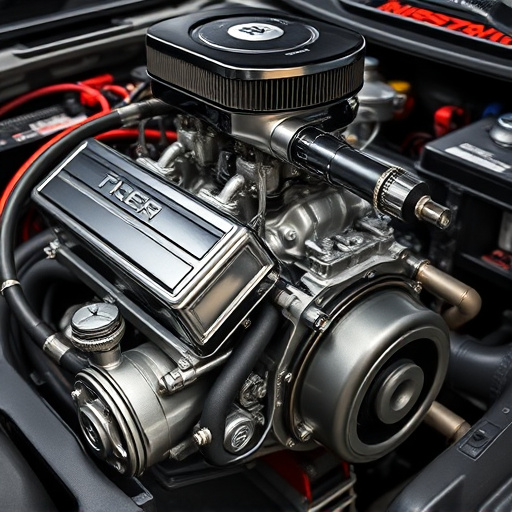
Exhaust tips for trucks are typically crafted from a range of materials, each with its own unique properties and advantages. Stainless steel is a popular choice due to its superior corrosion resistance, ensuring longevity even in harsh environmental conditions. This robust material can withstand extreme temperatures and pressures, making it ideal for heavy-duty applications. Additionally, stainless steel exhaust tips offer a sleek, professional finish that enhances the overall appearance of the vehicle.
Other materials, such as aluminum, are also employed to construct truck exhaust tips. Aluminum is lighter than stainless steel, contributing to improved fuel efficiency and reduced overall weight of the vehicle. While it may not match stainless steel’s durability, aluminum exhaust tips are known for their excellent heat dissipation properties, which can help manage temperature buildup within the system. This makes them a preferred choice for those seeking both performance and lightweight design, especially in vehicles with high-performance engines or modified air intake systems and suspension kits.
– Overview of common materials

The choice of material for an exhaust tip for truck is a significant factor in determining its longevity and overall effectiveness. Common materials include stainless steel, aluminum, and carbon fiber. Stainless steel is renowned for its durability and corrosion resistance, making it a popular option for both stock and aftermarket exhaust systems. Its high strength-to-weight ratio ensures that the exhaust tip can withstand the extreme temperatures and pressures generated during vehicle performance without compromising structural integrity.
Aluminum, another frequent choice for exhaust tips for trucks, offers excellent heat conductivity and light weight. While it may not be as resistant to corrosion as stainless steel, especially in salt-prone areas, aluminum exhaust tips are often coated with protective layers or treated with special finishes to enhance their durability. Carbon fiber, a more specialized material, is prized for its exceptional strength and lightweight properties, making it ideal for high-performance vehicles and those seeking a unique aesthetic appeal alongside enhanced vehicle performance.
– Advantages and disadvantages of each
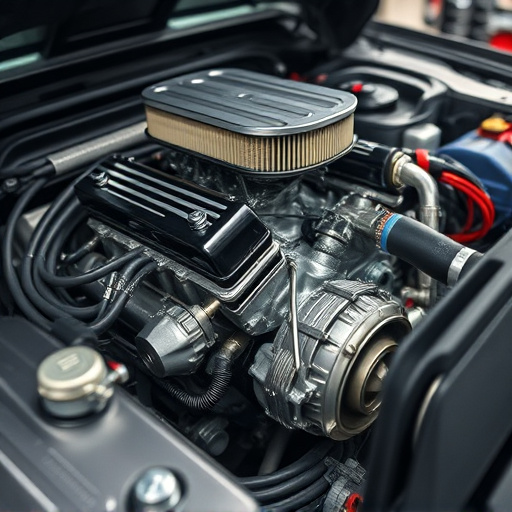
When it comes to choosing materials for an exhaust tip for truck applications, several factors come into play. Stainless steel is a popular choice due to its superior corrosion resistance and ability to withstand extreme temperatures, making it ideal for rugged trucking conditions. It offers a sleek look and ensures long-lasting performance, especially when combined with high-performance parts designed for trucks. However, stainless steel can be more expensive than other options, like aluminum, which is lighter but may require additional coatings or treatments to prevent rust.
On the other hand, exhaust mufflers crafted from advanced composite materials have emerged as a game-changer in the trucking industry. These innovative designs offer exceptional durability and lightweight properties, enhancing fuel efficiency. Composite mufflers are known for their noise reduction capabilities and can withstand intense vibrations. Yet, they might not be suitable for all environments, as certain harsh climates could accelerate wear and tear. Nonetheless, with proper maintenance, composite exhaust components can provide a reliable and cost-effective solution for truck owners seeking both performance and value.
When choosing an exhaust tip for trucks, understanding the material durability is key. Each option offers unique advantages and drawbacks, from stainless steel’s superior resistance to corrosion and high temperatures to aluminum’s lightweight design and cost-effectiveness. Ultimately, the best choice depends on specific driving conditions, budget, and performance goals. By carefully considering these factors, truck owners can select an exhaust tip that enhances their vehicle’s durability and overall driving experience.








